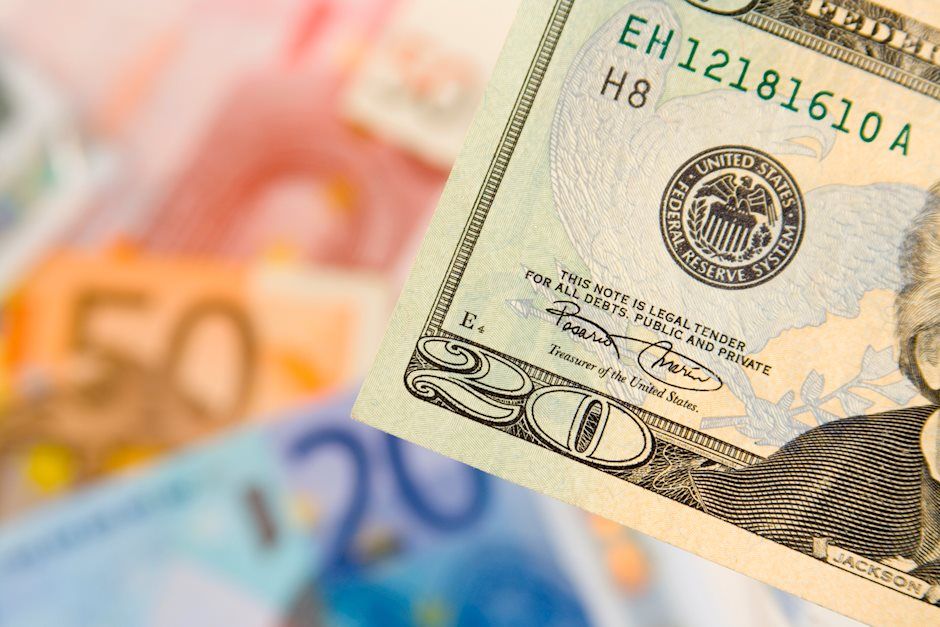Near Term Correction in the US Dollar?

The US dollar hit fresh multi-month highs versus the euro, sterling, Australian and New Zealand dollars this past week, but the greenback actually ended the week lower against most of the major currencies. This reversal has many traders wondering if there could be a steeper near term correction in the US dollar. Fundamentally, the US economy is performing better than its peers and slower global growth will hurt the economy less than the Eurozone, Australia or New Zealand. However, even though the FOMC minutes were upbeat, the cracks are beginning to show according to the latest economic reports as home sales and durable goods orders decline. There's very little market moving US data next week but the ones that are scheduled for release could hurt more than help the US dollar. The risk is to the downside for consumer confidence because stocks have fallen. Personal income and spending could also soften due to lower earnings growth and retail sales. Technically USD/JPY rejected the 20-day SMA and is trading below 110, which opens the door for a move down to 109. But the primary catalyst for a near term correction in the US dollar should be short covering. Euro is a tougher call because of the unpredictability of the European elections, but GBP/USD, AUD/USD and NZD/USD should bounce.
Meanwhile we continue to operate in a headline driven market. Investors will be watching Sunday's European election results closely and will keep an eye on nominations for new UK Prime Minister. US markets are closed on Monday for Memorial Day so liquidity will be lower but with the election results out, this could mean greater and not lower volatility for currencies. The Swiss Franc and Australian dollars were the best performers last week while sterling lagged behind. With the markets focused on Europe, we could see a further near term recovery in AUD and NZD.
Given the importance of the election and the possibility of a gap open in EUR/USD Sunday, we are reposting our comments on the election. When the markets open on Sunday night, we could see a big move in the euro. After hitting 2 year lows this week, EUR/USD traded back above 1.12 ahead of European election results. Elections will be held in 28 countries across the European Union for seats in the 751-member European Parliament. This Parliament will make crucial decisions for the Union over the next 5 years that will include border control, national autonomy and Britain's relationship with the EU. This is the world's second largest democratic vote (after India's general election) and while turnout in past years tend to be low, the races are tight and we could see greater than usual participation. Nationalist euro-skeptic movement is growing and many investors are worried that populist parties could make strong headways. By market open on Sunday, we should know whether anti-EU parties gained enough seats to block legislative business. While it is widely believed that anti-EU sentiment will be negative for the euro, populism hasn't been negative for currencies. Just take a look at the US and Australia - protectionist policies helped rather than hurt the greenback while the Australian dollar surged after the surprise victory by Prime Minister Morrison. Populism is going strong and it hasn't been a crushing blow for any of these currencies. Does that mean the euro will rise if there's strong support for Eurosceptic or anti-European groups? It is hard to say but what's clear is that we can't assume that their victory will be negative for the currency.
Politics will continue to overshadow economics in the coming week. Euro traded higher despite softer data. According to the latest reports, service and manufacturing activity expanded at a slower pace in Germany and the Eurozone. The German IFO report also declined with the business climate index falling to its lowest level since 2014. The trade war weighed heavily on business sentiment and according to IFO President Fuest, "there is reason to worry, particularly about the manufacturing index." Markit Economics also noted "subdued business growth amid stagnant demand." The euro fell in response but the decline in US dollar sparked a wave of end of week profit taking that helped EUR/USD end the week higher. German labor market, inflation and retail sales numbers are scheduled for release next week - we are looking for softer labor market numbers but a recovery in inflation and spending.
Author

Kathy Lien
BKTraders and Prop Traders Edge

















